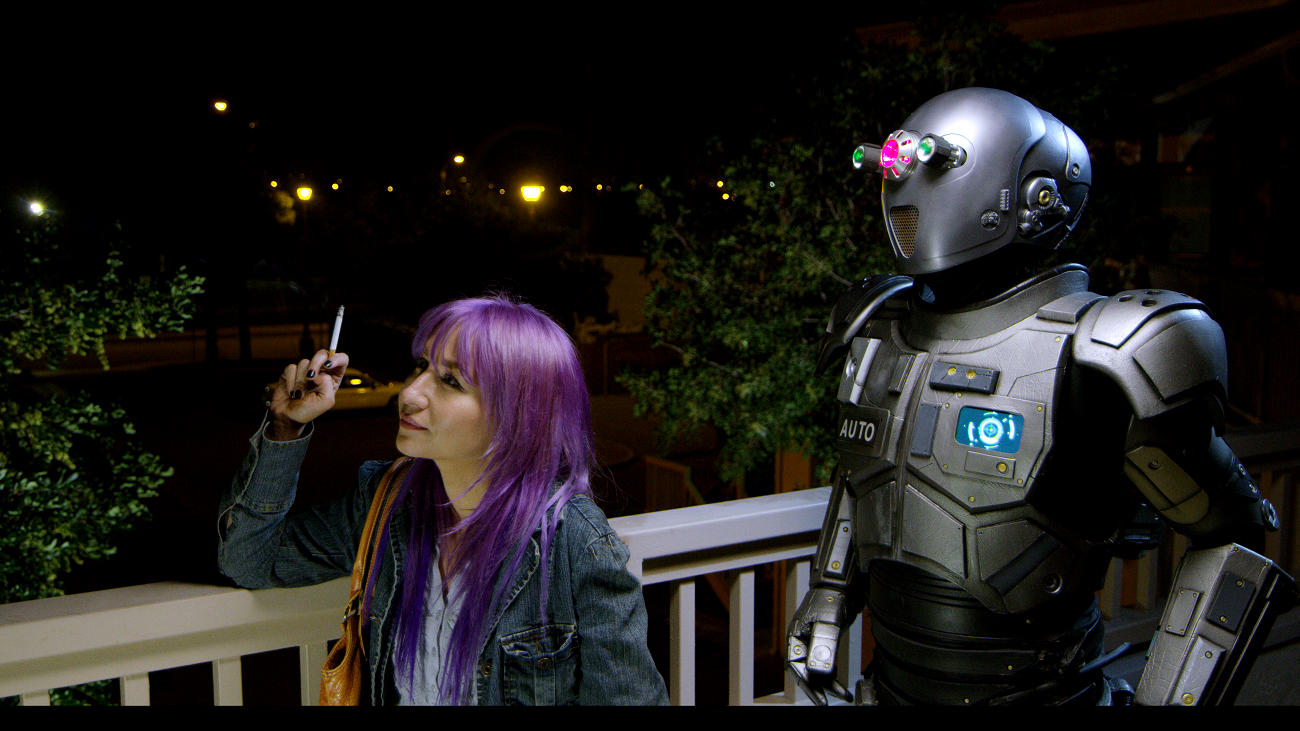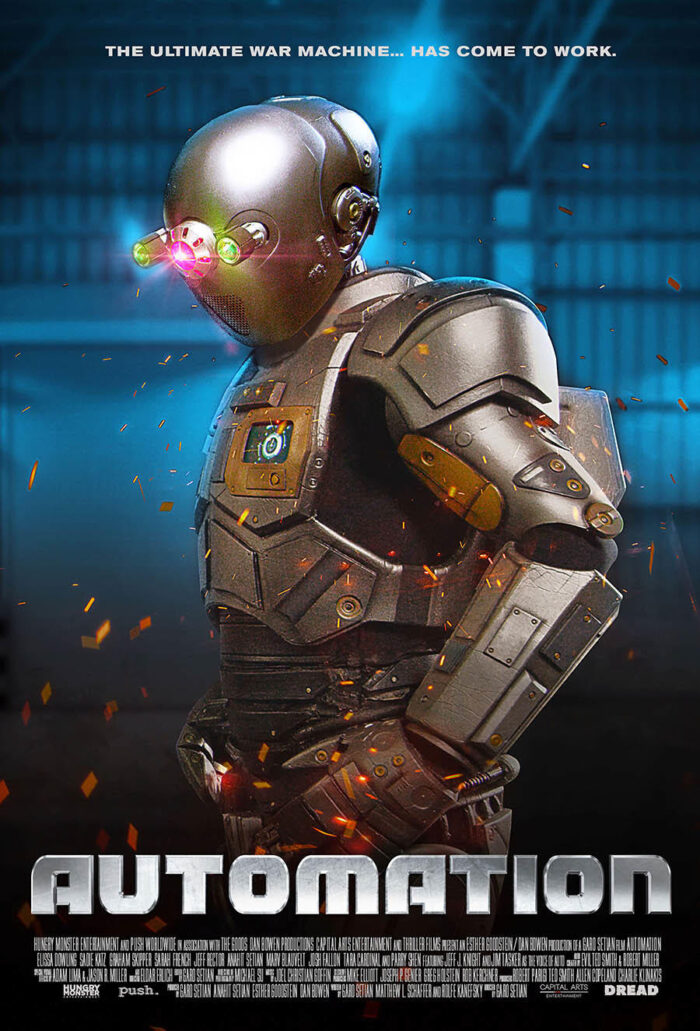What happens when a robot with a single purpose, finds itself no longer needed?
The following is a guest post by Sebastian Sanchez
There’s an apocryphal anecdote sometimes attributed to Roger Ebert in which he offered a one-man standing ovation to a movie that would be widely regarded as terrible. He’d later go on to say that he stood up and clapped for every movie, as they all are, regardless of their individual merits, a testament to immense effort, creativity and collaboration. I doubt it’s true, but I love that story regardless. I too believe that any movie seen to its completion is a statement of love to the craft, and Automation is no exception.
Automation bills itself as a fun ride with a heart, and in doing that, it delivers. The movie is about a robot, AUTO, who is hired to replace human workers in a very Dunder-Mifflin-like company, complete with both corporate and warehouse buildings. Predictably, this doesn’t go over well with them. The twist comes when it is AUTO who is slated to be replaced by an advanced version of itself, and he reacts in much the same manner as the workers. Only with more fatal consequences.
The movie is almost evenly split in two different halves. In the first half of the movie we meet the characters and explore the dynamics of the workplace. Here is when we are endeared to AUTO, a surprisingly human character that genuinely seems to care for his coworkers, and is constantly learning from them, in more ways than one. We are also presented with Jenny, a struggling artist working part time with the company who is extra kind to AUTO and therefore our audience stand-in for interactions with him. The second half of the movie turns into a slasher-thriller mashup, when AUTO learns about his impending replacement and traps his own co-workers inside the building. Enraged by this revelation, AUTO reverts to a combat mode and believes his only mission is to save himself and Jenny, who does not want to be saved by him, anyone else is a threat. The stakes feel high and we find ourselves in the shoes of the characters we met in the first half, who are now fighting for survival.The first half is the heart, the second is the fun. As a low-budget movie, it delivers on its promise. Unfortunately, those strengths don’t outweigh the film’s weaknesses.

I found the central question in Automation to be interesting and timely, and I would have prefered it to be explored more in-depth. Instead, the movie seems confused as to what message it even wants to send, and in turn confuses the audience leaving us unsure who to root for. Is AI inherently dangerous as it is bound to prioritize self-preservations over humans (see Terminator)? Or is AUTO an innocent byproduct of its environment, making the humans who play God at fault (see I, Robot)? Should we empathize with AUTO, an AI so advanced it is almost indistinguishable from humans (see Ex Machina)? Or should we prioritize human connection, disregarding the dangerous manufactured imitation of feelings that seem so close but could never truly be real (see Her)?
There’s always the possibility that they were trying to make an innovative robot-slasher movie without trying to send a message about intelligent machines. But if that’s the case, why did they have to lean so much in the human vs. robot workers angle? This could have been a fun B-movie, but it takes itself too seriously for that, especially in the first half. It’s as if the whole first part of the movie was teeing up the human vs. robot ethical argument, but there was no follow through. I found that tonal shift jaring.
That is part of another problem I had with the movie, there were multiple tonal shifts that felt unmotivated. There are attempts at humor, but they often feel ill-timed and sometimes even malicious. The jokes fall flat because of the context in which they were told. And the sound editing added to the way the jokes felt: discordant.
There were also romantic subplots that didn’t add to the story at all. In fact, other than the Jenny and AUTO relationship, any attempt at a romantic subplot detracts from it. Jenny’s short-lived crush on Alan, the inventor of AUTO and its replacement, felt forced and rushed. We later find out that Alan had previously had a relationship with Susan, the boss who insists on replacing staff with robots. Neither of those relationships added to the story, but the scenes that built them took away from the ongoing action. And the worst offender was Linda, a woman who’s inclusion in the movie seems to be only to add sexual innuendo.
And other than Jenny, AUTO, and to a certain extent Susan, all characters felt flat. Especially the women. They either fit the role of slut or surrogate mother. You can tell the little care female characters were given from the costume design to the aforementioned shoehorned romantic subplots. Even Susan and Jenny, our tropey final girl, are gratuitously sexualized in one scene each.
I did like the chemistry between Jenny and AUTO. I appreciate Susan’s character arc. This movie has heart, and it offers a fun ride if you are willing to put questions aside. I commend the creative team behind it, their resourcefulness is evident. But given the subject matter, and especially how it was presented at first, I just think it has a lot of untapped potential. The final shot of the movie solidifies that AUTO was more than a machine, but he is given no redemption. For whatever reason, AUTO was a killing machine in the second half of the movie and we never explore what his humanity, and his relationship with Jenny, could have actually meant.
Instead, this is a fun B-movie that takes itself too seriously at times and shoe horns jokes where they don’t always belong. But at least it was a ride, and for that, I commend the creative team behind it.
